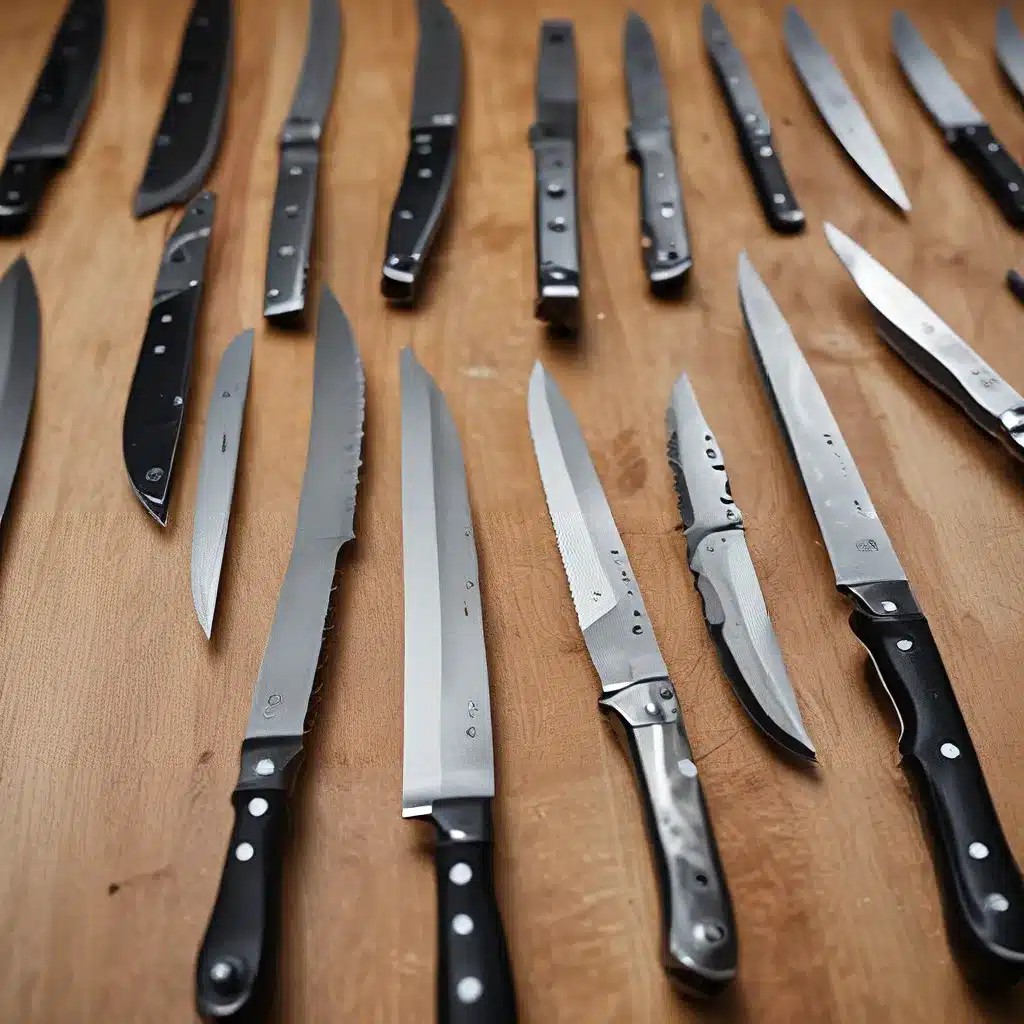
As a knife enthusiast, I’ve always been fascinated by the role these tools play in our society. But in recent years, I’ve noticed a troubling trend – a number of high-profile incidents involving knives have thrust these everyday objects into the national spotlight, often with serious legal consequences.
The Natalia Grace Case: A Complex Tale of Trauma and Controversy
One such case that’s been particularly captivating is the story of Natalia Grace. From what I’ve gathered, Natalia was adopted by an American family as a young girl, but their relationship took a dark turn just a few months later. Apparently, the family started to suspect that Natalia was not the child they thought she was – there were allegations that she was actually an adult woman manipulating the situation.
The details of this case are still quite murky, but it seems the family eventually severed ties with Natalia, citing behavioral issues and a concerning shift in her demeanor. According to Reddit posts, at one point the family’s friend Antwon even called the show’s producers to say that Natalia was “tweaking” and things had taken a turn.
But the plot thickens – more recent reports indicate that Natalia is still living with the family and they have happily adopted her. So what really happened here? Was there some kind of violent incident involving a knife that led to the initial fallout? Or was it simply a case of a traumatized child struggling to adjust to her new life? The lack of clear, reliable information makes this a truly perplexing and unsettling case.
Knives and the Law: A Precarious Balance
The Natalia Grace saga is just one example of how knives can become embroiled in high-stakes legal battles. Across the country, we’ve seen numerous instances where the use or possession of knives has led to criminal charges, lawsuits, and a tangled web of legal consequences.
Take, for example, the case of Herman Knives, a popular manufacturer that’s faced its fair share of legal scrutiny. A few years back, one of their folding knives was allegedly used in a violent altercation, leading to a protracted legal battle that threatened to cripple the company.
Incidents like these highlight the delicate balance that knife enthusiasts and manufacturers must navigate. On one hand, knives are essential tools used in countless everyday activities – from cooking to outdoor recreation. But on the other, they can also be wielded as dangerous weapons, with the potential to cause serious harm.
The Evolving Legal Landscape
The legal landscape surrounding knives is constantly shifting, making it a minefield for anyone involved in the industry. Different states and municipalities have wildly varying laws when it comes to knife ownership, carry, and use. What might be perfectly legal in one jurisdiction could land you in hot water just a few miles down the road.
This patchwork of regulations creates a lot of uncertainty and ambiguity. As a result, even law-abiding citizens can find themselves on the wrong side of the law through no fault of their own. And when high-profile incidents occur, lawmakers often scramble to enact stricter knife laws in the name of public safety.
The Importance of Responsible Ownership
In the face of this legal complexity, it’s more important than ever for knife owners to be responsible and well-informed. Knowing the local laws, storing and transporting knives properly, and using them only for their intended purposes can help mitigate the risk of getting caught up in a legal nightmare.
But even the most diligent knife enthusiast can’t always predict how a seemingly innocuous situation might escalate. The Natalia Grace case is a prime example – what started as a family adopting a young girl spiraled into a tangled mess of legal uncertainty and public scrutiny.
The Ongoing Debate: Balancing Safety and Freedom
As I delve deeper into these high-profile knife incidents, I can’t help but feel a sense of unease. On one hand, I understand the push for tighter regulations and greater oversight. Knives can be dangerous, and we have a responsibility to protect public safety.
But on the other hand, I worry that knee-jerk legislative reactions and overzealous prosecutions could infringe on the rights and freedoms of law-abiding knife owners. After all, these tools have been an integral part of human history, used for everything from food preparation to artistic expression.
The Need for Nuance and Understanding
This is a complex issue that deserves nuanced discussion and a balanced approach. Likely, we won’t see a simple solution anytime soon. The debate over knives and the law will probably continue to be a contentious and evolving topic, with new incidents and legal battles cropping up on a regular basis.
As I see it, the key is to find a way to uphold public safety without unfairly criminalizing responsible knife ownership and use. Perhaps this could involve more comprehensive education programs, clearer guidelines for law enforcement, and a greater emphasis on understanding the cultural and practical significance of knives in our society.
Encouraging Further Exploration
Ultimately, I believe this is an issue that warrants deeper exploration and ongoing research. There are likely many perspectives and insights that haven’t yet been fully explored. I encourage readers to seek out additional resources, stay informed on the latest developments, and engage in respectful dialogue on this important topic.
Who knows – with continued examination and open-minded discourse, we may just find a way to keep knives in the spotlight for all the right reasons.


